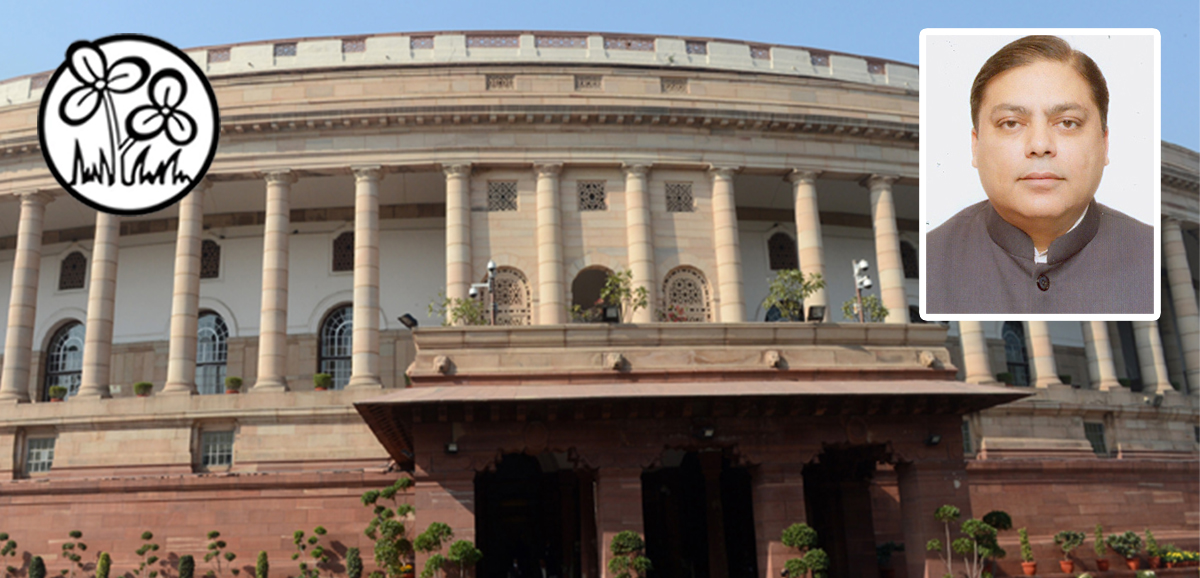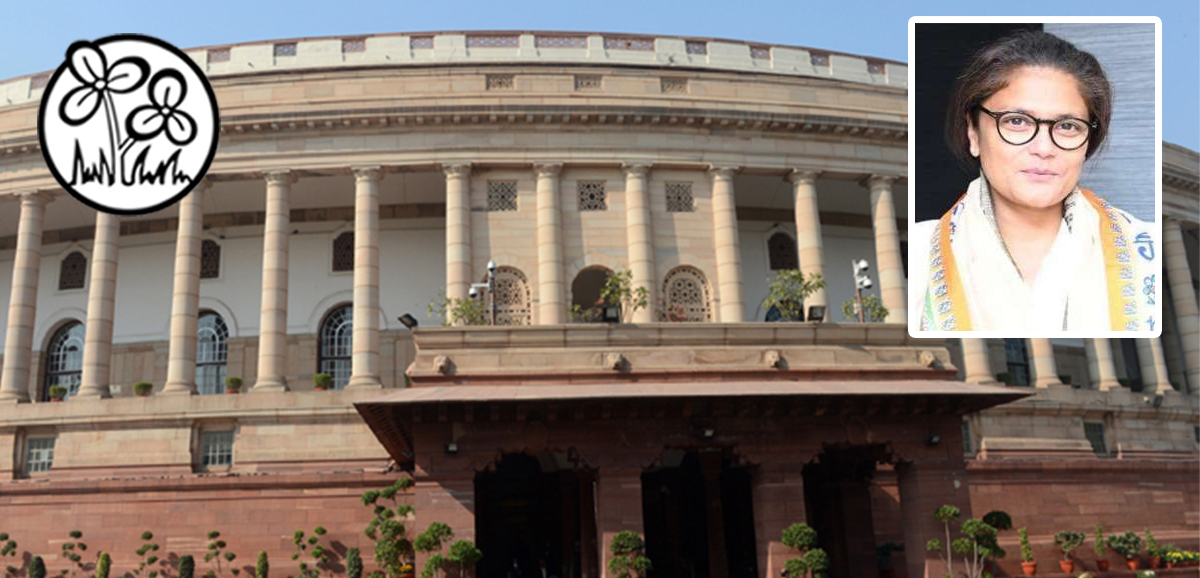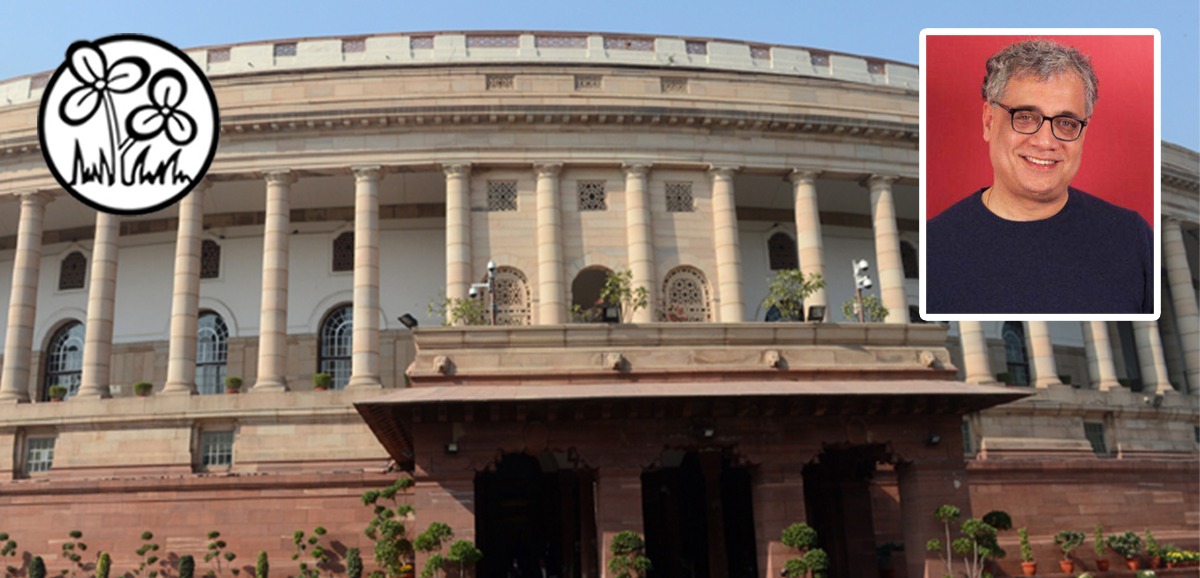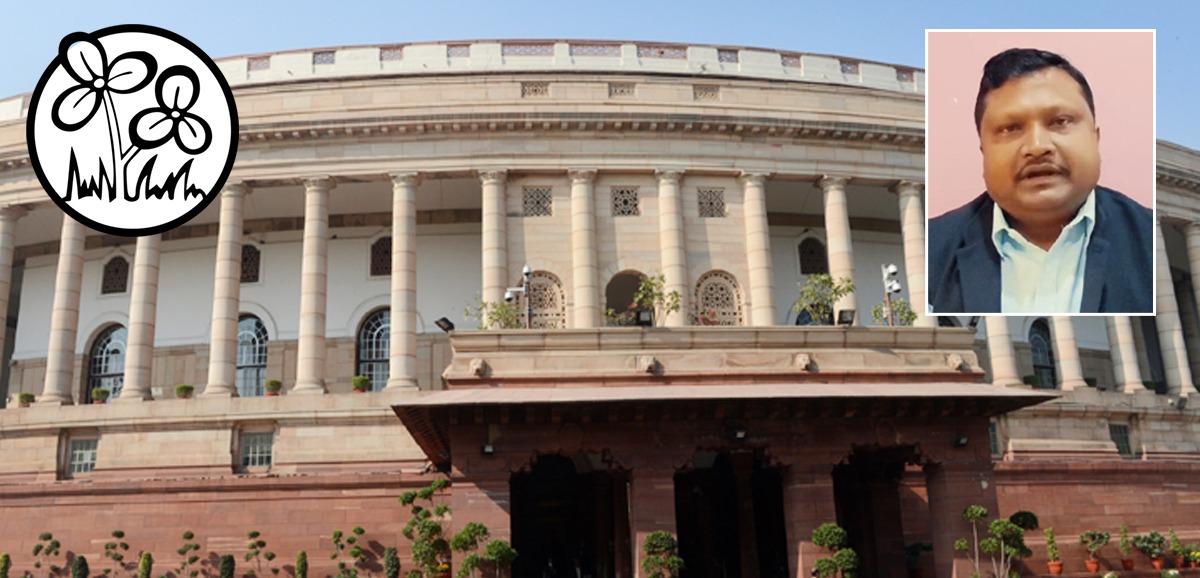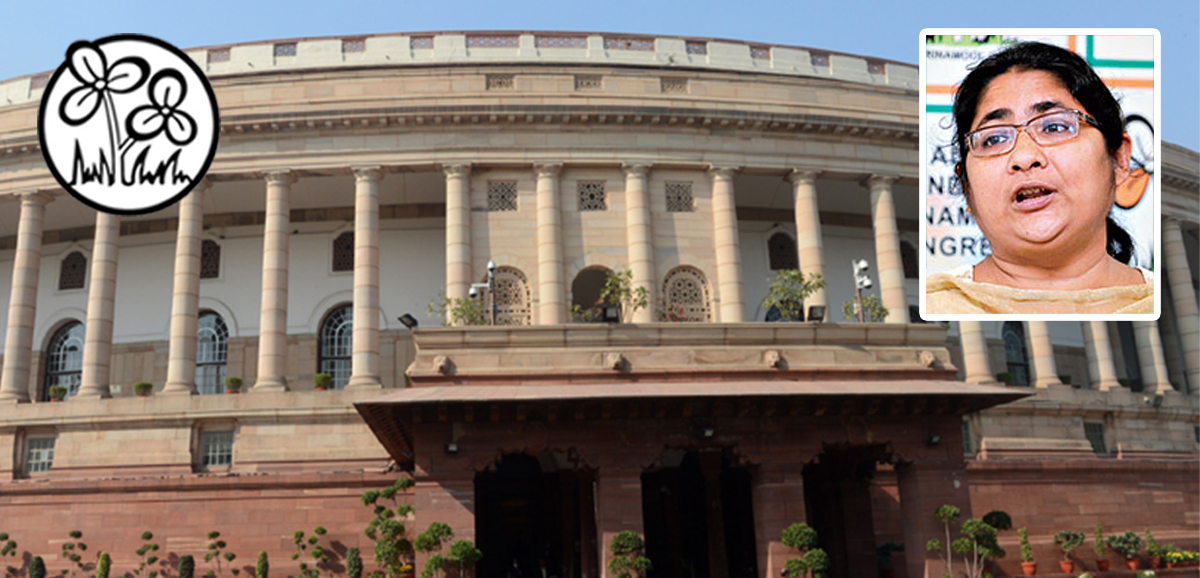Sir, every Member of my Party has taken one word from the Preamble as a theme and spoken on it, on the Constitution. The Constitution is more than a book in a library. It is a living, breathing document on the streets of India. We have heard lots from 1940, 1950, 1960 and 1970, lots in the 40s and 50s, and good. History is always useful. But I wish to take you on the streets of this living, breathing document. Let me start with 1984. A young lawyer, a part-time milk booth attendant, a political activist in 1984 suddenly went to the United Nations within one year 1984-85. Why? It is because this Constitution gave that person a chance to be elected to the Lok Sabha. It was Rajiv Gandhi who gave her a ticket. Doesn’t matter bank account, doesn’t matter social status, but she got the ticket and, after that, went and represented India at the United Nations. There are many light-hearted stories about how she took her murmurah around because she still lives in that one room home in Kolkata. That was 1984 and the Constitution made that happen for her. In 1997, again, the Constitution, not in a library but, on the streets. The Congress party, she felt, was too close to the CPI(M). So, they had a Bengal seminar, big seminar in Bengal, of the Congress Party. They had it inside the stadium. This lady had her own conference outside the stadium. Five thousand people came inside the stadium. Fifty thousand people came outside the stadium. This is the Constitution on the streets. There are about 40-50 examples. I will just give you one more. And, that is fighting for farmers. All options had run out. So, she went on a 26-day hunger strike. This is a woman who has sent people like me to Parliament. Next time, you people here talk about women, listen to what this woman has to tell you. One is, Women’s Reservation Bill. You brought it. When will women come into Parliament? It is 2034. In my party, All India Trinamool Congress, out of our 43-44 MPs, 38 per cent of women are already in Parliament. This is the kind of a debate we should be having. Otherwise, it is screaming and shouting! What have you done for women in Parliament? In the last Lok Sabha, it was 14.5 per cent. This Lok Sabha, you brought it down to 13.5 per cent! Don’t talk to us about women. I am glad you took a good idea from a State –State health card, Swasthya Sathi and, two years later, you turned it into Ayushman Bharat. Good. But, the health card in Bengal is in the name of the woman of the house. And, under Lakshmir Bhandar, Rs. 1,200-1,500 given to women, I welcome that the idea started by Mamata Banerjee in Bengal many years ago has now been copied by multiple States. Very good! But, see your arrogance! On a day where we are debating the Constitution of India, your hubris makes you bring a Bill to amend the Constitution at 12 noon! Bring it, we will fight you. We will defeat you; on the One-Nation-One-Election. And you are bringing this Bill. For heaven’s sake, you cannot conduct one election in one State in one phase. You need seven phases! I will give you examples. You can’t conduct one election in one constituency! You need two different days. Sir, it has been a 30-hour debate. There are one lakh forty-six thousand words in the Constitution. I want to talk about three important words which are not in the Constitution. Very important. And, let us reflect. Federalism! As per your view, you say, cooperative federalism. Your view is PF, not ‘provident fund’ but ‘political federalism’. What do you say? You say, ‘We don’t like you. We can’t defeat you. So, what we will do? We will block MGNREGA funds and we will block Awas Yojana funds.’ It doesn’t matter. We brought our own funds to pay in Bengal. You will do this. It is because double engine is an unconstitutional concept. We spend so much time on words, words, words. I want to pause for 10 seconds and give my 10 seconds for everyone, through you, Sir, to introspect. Think about it. Federalism! Second word not mentioned in the Constitution – ‘media.’ And, we have all the respect for journalists; all of them, not mentioned in the Constitution. I want to use this platform of Parliament to ask the 10 biggest media owners. You are watching this, I hope. The ten biggest media owners! Don’t give me examples of 1975 in the Emergency. No! The ten big media owners, you are the billionaires. The next seven seconds are for you. In silence, reflect, and introspect. And the third word not mentioned in the Constitution, which is very important, is the ‘Opposition’. It is not mentioned in the Constitution. It is the very basic rule. The Opposition must have its say. We do not have the numbers here. The Government will have its way. It is as simple as that. So allow us to have our say. I am happy that the hon. Home Minister is here because sometimes, the Opposition is not in Parliament. Let me give you two examples. One, unanimous resolution passed in the Bengal Assembly to fast track a Bill for the safety of the women who are raped, the Aparajita Bill. And the second example is to change the name of the State to ‘Bangla’. Where are these Bills? The Governor’s office – deep freeze. After that, it comes to high constitutional office. I have no problem with the high constitutional office, not at all, because the high constitutional office will only act on the advice of Mr. Modi, Mr. Shah, the Home Minister, the Cabinet. I want the high constitutional office or those advising on these issues of the Opposition to reflect. Sir, reflection is difficult. Reflection has to be in silence. So, don’t hassle me when I am speaking. Then, the Farm Bills. What happened on that? I have got 30 examples of the Parliament. I will take one. Sir, 146 MPs were thrown out for another Bill, Criminal law Bills. There is an enabling act of the Nazis that they brought there in 1933. Read that because that also gives you similarity. But come to the Farm Bills. What happened to the Farm Bills? The Opposition objected. Why? It is because we wanted voting on the Bills. What happened when the Opposition objected? Everyone got suspended. The videos went out. “Oh! The Opposition was dancing or moving around on the tables!” My question is: When you repealed the Farm Bills, you quietly sat down and repealed the Farm Bills. Why did not you allow the Opposition to debate that subject when you repealed those Bills? Allow us. Sir, in all this, some of these explanations will not be understood because there are parties like mine led by Mamata Banerjee and the people of Bengal. You try and get us in Bengal, every time out of ten seats, you lose three, we win eight. So, you are stuck with that. Sir, we will not allow this Parliament to ever become an RSS shakha. Never! We will fight for it. But I want to end on a celebratory note, on a happy note. I have stayed only with the Constitution. And when I started, I said that the Constitution is more than a book in the library. It is a living, breathing document on the streets, and I know these streets of Kolkata, of every district in Bengal. Sir, I will end with a story. It is a reality. There is a Jewish bakery in Kolkata where a week away from Christmas,– there must be about 4,000-5,000 Jews in India — the Jewish bakery makes delicious Christmas cakes. All the 300 bakers in that Jewish bakery belong to one community. They are all Muslims, each one of them. And about a week before Christmas, there are long lines outside the bakery, and if you go and ask the people in those lines, they will tell you, “Bhaskar, Reema, Arun”. It does not matter, they are all Indians, but they are in that line in that Jewish bakery. Eighty per cent are Hindus. … Sir, I will take one more minute. And, what are they celebrating? A Christian festival! Sir, I want to conclude by saying, come to Bengal. Come at the end of March. Now, you can come and celebrate Christmas. Come at the end of March to line up on Red Road and watch the Eid prayers. Or, mark the date, on the 30th of April, come to Digha to see the beautiful new Jagannath Temple. Thank you, Sir.



